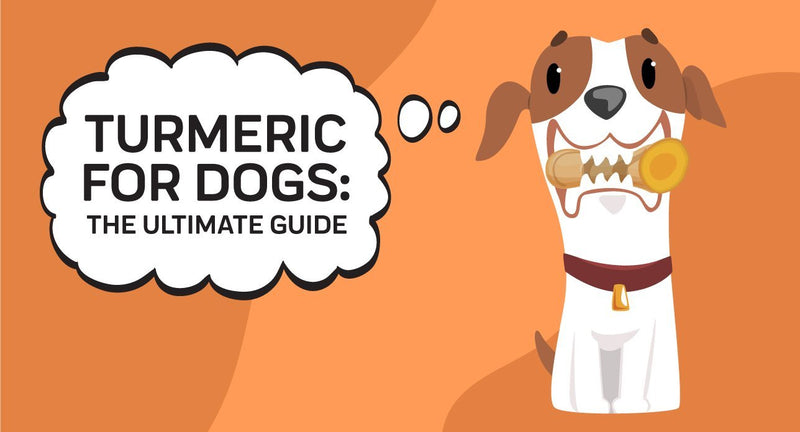
Longtime dog owners know that our furry friends can experience the same sorts of health issues that humans do. From headaches to hypertension, to treat nausea, vomiting, and disorientation caused by car sickness, dogs are just as susceptible to all the things we treat with medicine.
But do those same medications work for dogs?
In general, the answer is no. While some medications are relatively harmless in animals, others (like ibuprofen) can easily lead to serious health problems. One drug that has been shown to work just as effectively and safely in humans as it does dogs is Dramamine.
If your canine companion often gets sick during a car ride or is otherwise susceptible to nausea and vomiting, read through our complete, vet-approved guide to Dramamine for dogs.
- What Is Dramamine?
- Identifying Motion Sickness In Dogs
- Treating Travel-Related Anxiety In Dogs Without Dramamine
- Side Effects Of Dramamine For Dogs
- Should I Give My Dog Dramamine?
- How Much Dramamine Can I Give My Dog?
- Which Formulation Is Best For Dogs?
- Can My Dog Overdose On Dramamine?
- How To Time The Dosage
- How To Give Your Dog A Dramamine Dose
- Alternatives To Dramamine For Treating Motion and Car Sickness In Dogs
Dramamine is a medicine used to reduce symptoms of motion sickness by disrupting the vestibular system in your pet's ears. This system is responsible for controlling your sense of balance, and can be thrown out of whack when traveling in a vehicle.
Symptoms of vestibular disease include nausea, vomiting, and dizziness. In severe cases, your pet may lose its balance and fall over. If you're planning a road trip with your furry friend, ask your veterinarian if Dramamine is right for them.
Dramamine, also known by its generic name dimenhydrinate, is an antihistamine and anticholinergic drug. It combines the active ingredient diphenhydramine with 8-chlorotheophylline, which is a mild stimulant similar to caffeine, to counteract the nauseating effects of an overstimulated vestibular system.
Anticholinergic drugs like Dramamine are often used to treat dogs who suffer from motion sickness. These drugs work as central nervous system depressants, which can help to calm an anxious or excited dog. However, it's important to be aware that drug interactions are always a possibility. Therefore, it's important to speak with your veterinarian before giving your dog any medication, even something as seemingly innocuous as Dramamine.
Though Dramamine is not FDA-approved for use to treat dogs as it is in humans, you'll find many a vet willing to prescribe the drug. It is essentially a less potent form of Benadryl in its sedative and anxiety-reducing effects and carries with it a set of low-risk side effects or drug interactions.
Often called "travel sickness," motion sickness happens when the vestibular system located in your inner ear is overstimulated. The vestibular system is responsible for balance and coordination, and vestibular disease occurs when this system is overstimulated. This may lead to symptoms of nausea, vomiting, dizziness, and fatigue.
If you see that your dog has motion sickness symptoms during car travel, Dramamine can be an effective treatment for counteracting these effects.
Symptoms of Motion Sickness In Dogs:
- Whining
- Excessive yawning
- Drooling
- Nausea
- Vomiting or diarrhea
- Inactivity or lethargy
- Dry heaving
- Trembling, uneasiness, or anxiety
- Excessive licking
- Rapid breathing
The negative reactions to car travel dogs may develop aren't always vestibular in nature. Often it is anxiety that snowballs into many of the negative effects associated with car sickness.
But even without anxiety, your dogs may develop extreme adverse relationships to the car, which could be a result of a traumatic association with driving or with the car itself. Going to the vet, leaving their previous family/home, or being taken to a shelter can all cause your dog to associate travel with negativity. Of course, you can use online vet chat for some cases, but you can’t fully eliminate driving with your pet in a car.

While most pet owners will likely be fine with giving their pet Dramamine, some may want a more natural solution. If your dog's issue with car travel is deeply rooted, or their nausea and vomiting are chronic, talk to your vet. You may not want them on the drug every week.
Overcoming these issues with your pet will reduce their reliance on the drug, saving you money and cutting back on the long-term effects of Dramamine for dogs.
Crate Training
One of the most effective methods your veterinarian will likely recommend is crate training. Crate training is the process of getting your dog to feel comfortable and safe in a cage while at home. By doing so, when they take trips, being in their crate will give them a sense of stability and comfort rather than fear.
You can crate train your pet by filling their crate with their favorite toys, pillows, and blankets so that it's more like a bed and less like a box. Giving your pet treats for going in their crate and leaving treats hidden in their blankets or pillows can break negative associations they have with space.
Baby Steps
Dogs, and most animals in general, take a much longer time to adjust to new surroundings than people do. While you may think of your home as your haven from the rest of the world, a lot of times our pets see it as the entire world. Even small changes like going to a new park can make your dog sick.
By taking small steps towards riding in a vehicle, as opposed to just loading your dog in the back and hitting the road, you can ease your dog into the experience in a less jarring way.
A good first step is getting your dog used to being in the garage. Spending positive time with your pet in the garage, especially if your vehicle is in there, will help them feel less afraid of the car itself.
From there, you can steadily work your way towards short trips around the block, slightly longer drives, and finally to a full-on road trip.
Take Breaks
While you might be fine to make long car trips with only a break or two along the way, your pet likely doesn't have the same kind of stamina. Taking breaks periodically to let them get out of the car, walk around, eat, and use the bathroom will help keep their anxiety at bay.
Stopping every one to two hours will give your pet a chance to recover from any motion sickness as well. Remember that even if they aren't making a fuss, they could be in pain or discomfort. They deserve a break just like we do.
The most common side effects of Dramamine are lethargy or sedation, dry mouth, and urine retention. So long as you aren't medicating your dog long-term for days on end, these side effects should be relatively mild and manageable.
If you notice these side effects within half an hour in your dog and are concerned for their well-being, speak to your veterinarian about reducing the Dramamine dosage or switching to a different drug.
Every pup is different, and each will have a different tolerance to the medication. Even though Dramamine is believed to be a relatively safe drug for dogs, your vet can warn you about the possible side effects.
More severe side effects could include diarrhea, vomiting, weight loss, and reduced appetite. These are less common and should be taken seriously. Monitor your dog's behavior, and if you notice any of these more severe side effects within half an hour, stop administering the Dramamine, and contact your veterinarian about your dog's health.

For the most part, giving your pup Dramamine shouldn't be a problem. However, there are some circumstances where you should hold back.
If your dog is pregnant or nursing pets, giving them Dramamine may be dangerous to a pup or two in the litter since the medication may transfer to them. If your dog is a working dog, be aware that they will likely be sedated and lethargic during their normal routines and assignments while taking Dramamine.
Also, if your dog has an antihistamine allergy, the medication could be dangerous for them, since it's an antihistamine. Dogs that have health issues like high blood pressure, glaucoma, seizures, intestinal or urinary obstruction, prostate disease, hyperthyroidism, or lung/heart disease should not take Dramamine, as the side effects could be much more substantial.
If your dog has any of the following conditions, Dramamine for dogs is not advisable:
- COPD
- High blood pressure
- Gastric outflow, stomach, bladder neck, or urinary obstruction
- Allergies from antihistamines
- Kidney, liver, lung, prostate, or heart disease
- Seizures
- Hyperthyroidism
- Enlarged prostate
So long as your dog doesn't have any of the listed health issues, they should be safe to take Dramamine. But you should always contact your vet before giving your dog any new medication.
The best way to determine how much Dramamine to give your dogs is to speak to your vet since they will be able to take factors into consideration like your pet's weight, age, and health before giving your dog Dramamine. Dosing isn't "one size fits all," so consult your vet before giving your dog Dramamine.
If you are giving your pet a standard tablet, 2-4mg per pound of your dog's weight is generally a safe amount.
If you're giving it to your dog for travel or motion sickness, wait to administer it until 30 minutes prior to when you'll actually be leaving. This way it begins to take effect right as you are hitting the road. Your vet would also recommend that you leave 8 hours between each dose to ensure your pet's safety.
One last tip, whether or not you're planning on giving your dogs Dramamine: try and feed them well before take-off, and make sure they do their business first. The less food in their tank, the less potential for a mess if the medicine doesn't take.
Dramamine comes in a variety of forms, with one of two active ingredients: dimenhydrinate or meclizine. Standard tablets, chewable tablets, and the form for kids contain dimenhydrinate and should all be fine for dogs to consume with proper dosage.
"All-Day/Less Drowsy" forms of the medication use meclizine since it has less of a sedative effect, and it should be equally safe.
"Non-Drowsy Naturals" tablets are not safe, however, since they contain a high dosage of ginger. Ginger is safe for dogs in small amounts, but not in the high concentration that this form contains.
Just like people, your dog can overdose on just about any medication.
Overdosing on Dramamine that contain meclizine will usually result in increased sedation or hyperactivity, but dosages high above the per pound prescribed amount may cause your dog to hallucinate, have seizures, have urinary retention, or an increased heart rate.
Overdoses on dimenhydrinate may lead to seizures, coma, hyperventilation, or death. If you notice any signs of toxicity in your dog, contact a veterinarian immediately.
After giving your dogs Dramamine, always monitor their condition. Make sure that you are aware of the way the drug can interact with other medications, as well as any natural remedies or prescription medication you may be using. Watch for signs of a worsening condition, and if you notice that they are exhibiting signs of an overdose, get help as soon as you can. The faster it is taken care of, the better your dog's chances of recovering.
If you are timing your dosages correctly, the effects of one round of Dramamine should be wearing off as the effects of a new round are beginning to take hold.
In general, waiting 8 hours between dosages is the best route to go. If you're giving your dogs a dose for a road trip, wait until just 30 minutes before you are about to leave before administering a follow-up dose.
It's not uncommon for dogs to be reluctant to take a dosage of medication. There is a fool-proof way of crushing a dose of medication up into a favorite meal or treat for your dogs, which will work most of the time. You can also purchase a "pill popper" online or at your local pet store.
These are tube-like devices that hold the pill in one end. You put the tube into their mouth with the end containing the pill near the back of their mouth, and release the pill. This prevents them from being able to spit the pill out and works well for medications that are best left intact.
These are relatively affordable and will come in handy every time your dogs need to take a dosage of medication.
CBD works by stimulating your ECS system, which is responsible for regulating your dog's mood, sleep, appetite, and more. It can reduce nausea quickly and naturally, as well as manage travel-related anxiety. While Dramamine for dogs can be a great way to treat motion sickness and nausea, some owners may choose not to give it to their pet.
Whether it's due to an antihistamine allergy, or simply wanting to give your pet something natural, it's perfectly reasonable to want an alternative medication for your pet. CBD treats for dogs and CBD oils for dogs are vet-approved, extremely safe for dogs, and are effective ways to help manage nausea and motion sickness symptoms in your pet.
Sources:
CBD Study on NauseaCBD For The Relief Of Nausea
CBD Suppress Acute and Anticipatory Nausea
Immune Responses Regulated by CBD
CBD Regulates Nausea


















